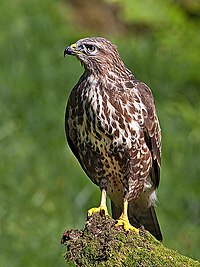
Association of Drug Cues and Craving With Drug Use and Relapse: A Systematic Review and Meta-analysis.
Sign Up to like & getrecommendations! Published in 2022 at "JAMA psychiatry"
DOI: 10.1001/jamapsychiatry.2022.1240
Abstract: Importance Craving, which is a strong desire for drugs, is a new DSM-5 diagnostic criterion for substance use disorders (SUDs), which are the most prevalent, costly, and deadly forms of psychopathology. Despite decades of research,… read more here.
Keywords: use relapse; cue; drug; drug use ... See more keywords

Promoting social attention in 3‐year‐olds with ASD through gaze‐contingent eye tracking
Sign Up to like & getrecommendations! Published in 2019 at "Autism Research"
DOI: 10.1002/aur.2199
Abstract: Young children with autism spectrum disorder (ASD) look less toward faces compared to their non‐ASD peers, limiting access to social learning. Currently, no technologies directly target these core social attention difficulties. This study examines the… read more here.
Keywords: gaze contingent; cue; training; social attention ... See more keywords

Foresight beats hindsight: The neural correlates underlying motor preparation in the pro‐/anti‐cue paradigm
Sign Up to like & getrecommendations! Published in 2017 at "Brain and Behavior"
DOI: 10.1002/brb3.663
Abstract: Human motor behaviors are characterized by both, reactive and proactive mechanisms. Yet, studies investigating the neural correlates of motor behavior almost exclusively focused on reactive motor processes. Here, we employed the pro‐/anti‐cue motor preparation paradigm… read more here.
Keywords: paradigm; cue; motor; anti cue ... See more keywords

Context fear learning and renewal of extinguished fear are dissociated in juvenile female rats.
Sign Up to like & getrecommendations! Published in 2019 at "Developmental psychobiology"
DOI: 10.1002/dev.21888
Abstract: Extinction is the decrease in emotion to a cue that was previously associated with an emotionally significant event. It involves repeated presentation of the cue without any consequences. In adult animals, extinguished fear to a… read more here.
Keywords: fear; renewal; cue; context fear ... See more keywords

Damselfly eggs alter their development rate in the presence of an invasive alien cue but not a native predator cue
Sign Up to like & getrecommendations! Published in 2021 at "Ecology and Evolution"
DOI: 10.1002/ece3.7729
Abstract: Abstract Biological invasions are a serious problem in natural ecosystems. Local species that are potential prey of invasive alien predators can be threatened by their inability to recognize invasive predator cues. Such an inability of… read more here.
Keywords: damselfly; cue; egg; predator ... See more keywords

Cue reduction or general cue masking do not underlie generalized chemical camouflage in pirate perch.
Sign Up to like & getrecommendations! Published in 2021 at "Ecology"
DOI: 10.1002/ecy.3625
Abstract: Avoiding detection is perhaps the ultimate weapon for both predators and prey. Chemosensory detection of predators via waterborne or airborne cues (predator-released kairomones) is a key prey adaptation in aquatic ecosystems. Pirate perch, Aphredoderus sayanus,… read more here.
Keywords: cue; pirate perch; perch; chemical camouflage ... See more keywords

Appetitive startle modulation in the human laboratory predicts Cannabis craving in the natural environment
Sign Up to like & getrecommendations! Published in 2018 at "Psychopharmacology"
DOI: 10.1007/s00213-018-4890-z
Abstract: RationaleDrug-related cues evoke craving and stimulate motivational systems in the brain. The acoustic startle reflex captures activation of these motivational processes and affords a unique measure of reactivity to drug cues.ObjectivesThis study examined the effects… read more here.
Keywords: cue; craving natural; natural environment; cue elicited ... See more keywords

Baclofen attenuates fMRI alcohol cue reactivity in treatment-seeking alcohol dependent individuals
Sign Up to like & getrecommendations! Published in 2019 at "Psychopharmacology"
DOI: 10.1007/s00213-019-05192-5
Abstract: RationaleBaclofen has been shown to effect fMRI alcohol cue reactivity in alcohol dependence, but potential varying effects related to baclofen dose levels have not been examined.ObjectiveThis study investigated whether baclofen attenuates craving and alcohol cue–elicited… read more here.
Keywords: cue reactivity; cue; alcohol cue; alcohol dependent ... See more keywords

Effectiveness of Non-Nicotinic E-Cigarettes to Reduce Cue- and Abstinence-Induced Cigarette Craving in Non-Treatment Seeking Daily Dependent Smokers.
Sign Up to like & getrecommendations! Published in 2021 at "Psychopharmacology"
DOI: 10.1007/s00213-021-05772-4
Abstract: RATIONALE Electronic cigarettes (e-cigarettes) are potential tools for smoking cessation because they deliver nicotine and simulate smoking behaviors. The contribution of sensorimotor versus pharmacological substitution is unknown. OBJECTIVES To evaluate whether non-nicotinic e-cigarettes, used alone… read more here.
Keywords: cue; abstinence; cigarette craving; non nicotinic ... See more keywords

Responding to social and symbolic extrafoveal cues: cue shape trumps biological relevance
Sign Up to like & getrecommendations! Published in 2017 at "Psychological Research"
DOI: 10.1007/s00426-015-0733-2
Abstract: Social cues presented at visual fixation have been shown to strongly influence an observer’s attention and response selection. Here we ask whether the same holds for cues (initially) presented away from fixation, as cues are… read more here.
Keywords: extrafoveal; shape; responding social; cue ... See more keywords

Response–cue interval effects in extended-runs task switching: memory, or monitoring?
Sign Up to like & getrecommendations! Published in 2019 at "Psychological Research"
DOI: 10.1007/s00426-017-0921-3
Abstract: This study investigated effects of manipulating the response–cue interval (RCI) in the extended-runs task-switching procedure. In this procedure, a task cue is presented at the start of a run of trials and then withdrawn, such… read more here.
Keywords: task; task switching; cue; response cue ... See more keywords